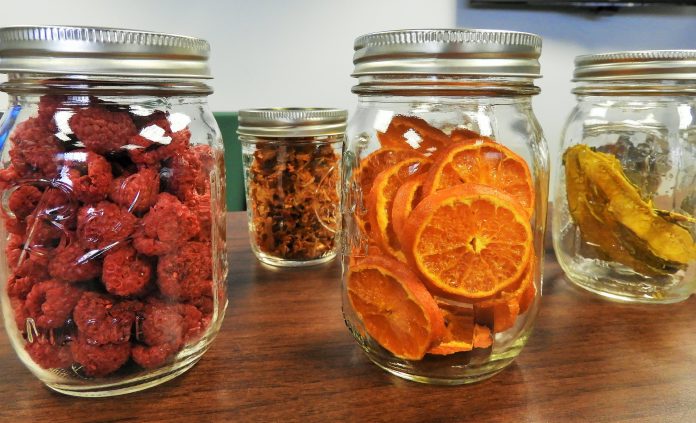Way back in 1987, the Canned Food Information Council designated February as National Canned Food Month. This was done to break down the many misconceptions surrounding canned food as being less nutritious than fresh.
Not that canning food is a new innovation. The story of canned food goes back to the French Revolution and Napoleon Bonaparte’s offer of a large reward to anyone who could develop a method of preserving food for his army. The prize was claimed by Frenchman Nicolas Appert when he discovered that applying heat to food in sealed glass bottles improved its shelf life. Appert’s research led to the current methods of canning.
Hernando County is fortunate to have its own cannery located in Brooksville. The Little Rock Cannery is where local residents can prepare their fruits, vegetables, meats, and seafood to be jarred. It has the capacity to pressure up to 96 jars at one time, along with a double water bath processor. High-speed commercial food prep equipment and a gas stove/oven allow members to prepare food and fill their jars in a timely, safe, and clean kitchen setting.
Canning your own fruits and vegetables is just as nutritious as fresh and frozen foods because canning preserves so many nutrients.
Fruits and vegetables used for canning are picked at peak freshness, ensuring the best flavor and nutrient quality. The amount of minerals, fat-soluble vitamins, protein, fat, and carbohydrate remain relatively unchanged once canned. But, because the canning process requires high heat, canned goods may have fewer water-soluble vitamins such as vitamin C and B vitamins. On the plus side, the heating process can actually increase the antioxidant content — for example increasing the amount of lycopene in tomatoes.
According to some food safety experts, dehydrated food has less nutrients compared to canned or frozen; frozen foods lose more nutrients during their frozen storage period than home-canned goods, and home-canned goods canned promptly after harvest can be more nutritious than fresh produce you buy at a supermarket — except when it comes to the adding sugar and sodium.
Canning has many benefits and can also save you money. It is Earth-friendly and rewarding to preserve your hard-earned garden harvest to be enjoyed during these uncertain economic times.
Membership at the Little Rock Cannery will teach you the principles of keeping food fresh and discouraging bacteria growth. The cannery works with the local farmers, by supplying information about upcoming crops that are ready for harvesting or available at the local fruit-vegetable stands.
The cannery offers two memberships. The Associate Membership is $50 per year and gives you unlimited canning. The Limited Day Pass membership is $10/day and limits canning to 200 jars per year.
Little Rock Cannery is located at 15487 Citrus Way in Brooksville. To learn more about canning classes, visit facebook.com/LittleRockCannery/

